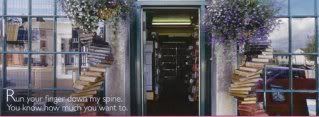1. Do not walk behind me, for I may not lead. Do not walk ahead of me, for I may not follow. Do not walk beside me either. Just pretty much leave me alone.
2. The journey of a thousand miles begins with a broken fan belt and leaky tire.
3. It's always darkest before dawn. So if you're going to steal your neighbour's newspaper, that's the time to do it.
4. Don't be irreplaceable. If you can't be replaced, you can't be promoted.
5. Always remember that you're unique. Just like everyone else.
6. Never test the depth of the water with both feet.
7. If you think nobody cares if you're alive, try missing a couple of car payments.
8. Before you criticize someone, you should walk a mile in their shoes. That way, when you criticize them, you're a mile away and you have their shoes.
9. If at first you don't succeed, skydiving is probably not for you.
10. Give a man a fish and he will eat for a day. Teach him how to fish, and he will sit in a boat and drink beer all day .
11. See a penny, pick it up. And all day long you'll have... a penny.
12. If you lend someone $20 and never see that person again, it was probably a wise investment.
13. If you tell the truth, you don't have to remember anything.
14. Some days you're the bug; some days you're the windshield.
15. Everyone seems normal until you get to know them.
16. The quickest way to double your money is to fold it in half and put it back in your pocket.
17. A closed mouth gathers no foot.
18. Duct tape is like 'The Force'. It has a light side and a dark side, and it holds the universe together.
19. There are two theories to arguing with women. Neither one works.
20. Generally speaking, you aren't learning much when your lips are moving .
21. Experience is something you don't get until just after you need it.
22. Never miss a good chance to shut up.
**AND**
23. Never, under any circumstances, take a sleeping pill and a laxative on the same night.


